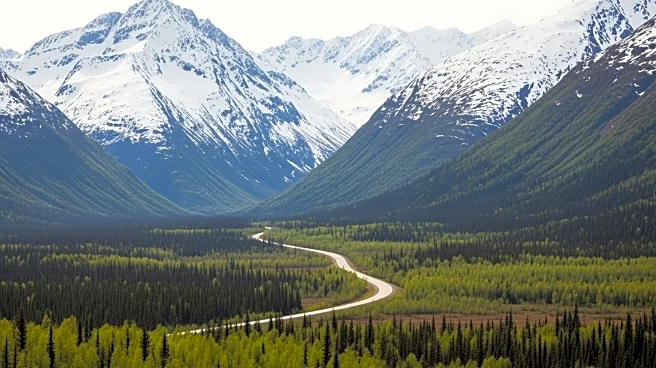What's Happening?
The Trump administration has approved a controversial road construction through the Izembek National Wildlife Refuge in Alaska. This decision aims to provide better access for residents of King Cove, a remote fishing village, to medical facilities. The road will
connect King Cove to Cold Bay, facilitating emergency medical evacuations. The decision also includes opening the Arctic National Wildlife Refuge to oil and gas drilling, a move that has sparked debate over environmental conservation versus economic development.
Why It's Important?
The approval of the road through the Izembek National Wildlife Refuge represents a significant policy decision balancing human needs and environmental conservation. Proponents argue it will improve healthcare access for King Cove residents, while opponents warn of potential ecological damage to a pristine habitat. This decision could set a precedent for future infrastructure projects in protected areas, influencing U.S. environmental policy and conservation efforts. The move to open the Arctic National Wildlife Refuge to drilling further underscores the administration's focus on energy development, which could have long-term implications for U.S. energy independence and environmental sustainability.
What's Next?
The decision is likely to face legal challenges from environmental groups and Indigenous communities concerned about the impact on wildlife and natural habitats. The construction of the road and the opening of the Arctic National Wildlife Refuge to drilling will require careful monitoring to mitigate environmental risks. Stakeholders, including policymakers, environmentalists, and local communities, will need to engage in ongoing dialogue to address the complex issues surrounding development in protected areas.

















